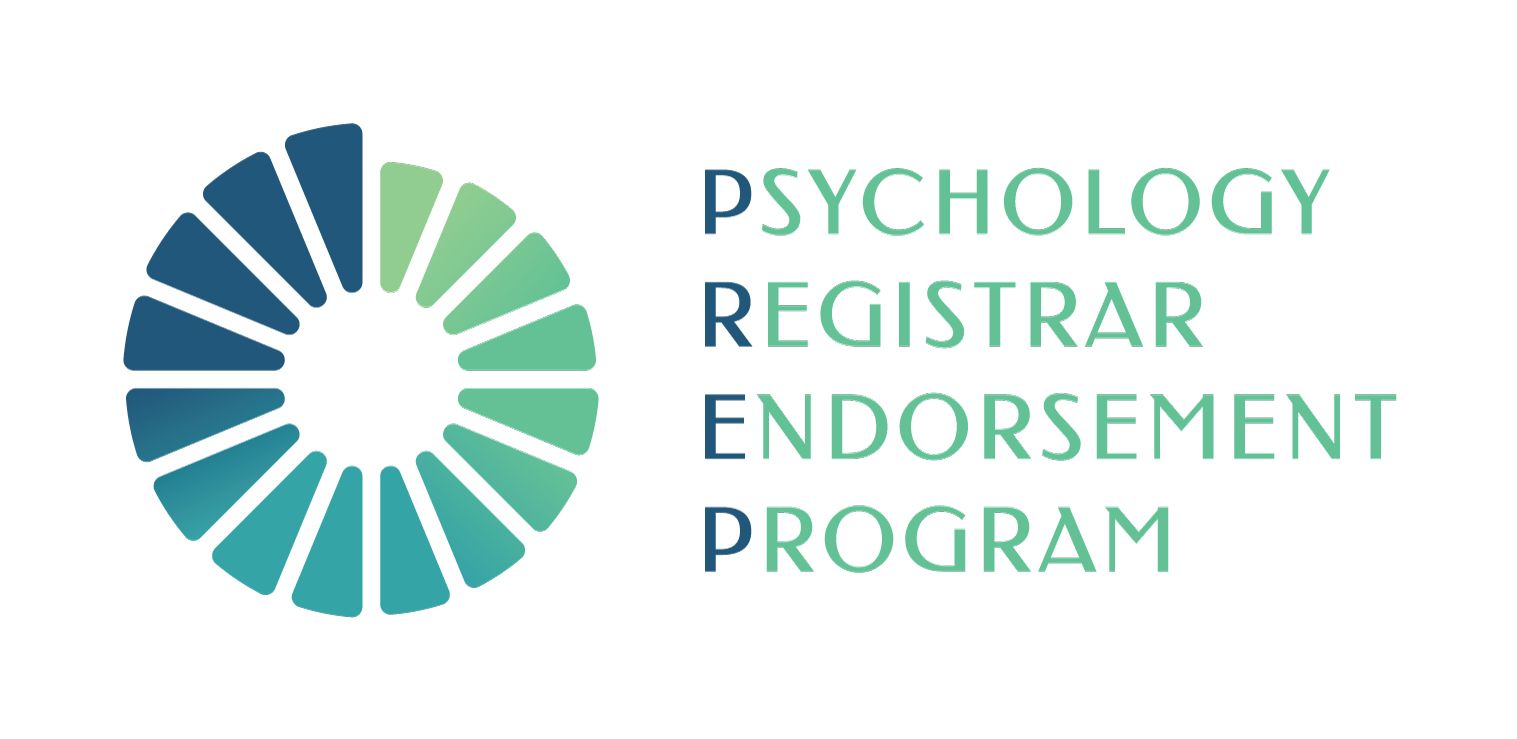Jul 31
/
Dr Rebecca Frost
How to meet the registrar program competencies
Sadly, we often see registrars enter the program a bit burnt out from their postgraduate experience and this means they do not get the most out of their registrar program. Working towards your area of endorsement is so much more than a box ticking exercise designed to just please AHPRA, it has the potential to be one of the richest and most satisfying learning experiences of your career.
Does your CPD meet the competencies?
According to the PsyBA Guidelines on Area of Practice Endorsement (2019)
"Registrars must be able to demonstrate that the competencies relevant to the area of practice have been met at a level consistent with the depth and expertise expected of an entry-level endorsed psychologist.
The area of practice competencies are grouped under the following categories:
1. Knowledge of the discipline
2. Ethical, legal and professional matters
3. Psychological assessment and measurement
4. Intervention strategies
5. Research and evaluation
6. Communication and interpersonal relationships
7. Working with people from diverse groups, and
8. Practice across the lifespan.
The competencies for each area of practice are set out in the Appendix of these guidelines.
During the registrar program, regular assessment of these competencies must be made by the supervisor/s and documented in progress reports. A progress report must be submitted to the Board for review when the registrar has completed half of the required supervised practice hours. At the end of the registrar program, a final progress report must be attached to the application for endorsement. All area of practice competencies must be achieved before the registrar is eligible to apply for endorsement."
When you design your own registrar program, one of your first tasks is to work with your supervisor to create a learning plan that meets these competencies, as well as your own unique goals that work with your strengths and identify your target areas for improvement and growth. Unfortunately, in my experience, many registrars end up just attending or accessing CPD that they find that is low cost, provided for them in their workplace, or spend the majority of the hours on their area of passion and interest.
While these are pragmatic choices, they are not providing the well-rounded base for a long and successful career as a psychologist and they likely will not be hitting the competencies.
"Registrars must be able to demonstrate that the competencies relevant to the area of practice have been met at a level consistent with the depth and expertise expected of an entry-level endorsed psychologist.
The area of practice competencies are grouped under the following categories:
1. Knowledge of the discipline
2. Ethical, legal and professional matters
3. Psychological assessment and measurement
4. Intervention strategies
5. Research and evaluation
6. Communication and interpersonal relationships
7. Working with people from diverse groups, and
8. Practice across the lifespan.
The competencies for each area of practice are set out in the Appendix of these guidelines.
During the registrar program, regular assessment of these competencies must be made by the supervisor/s and documented in progress reports. A progress report must be submitted to the Board for review when the registrar has completed half of the required supervised practice hours. At the end of the registrar program, a final progress report must be attached to the application for endorsement. All area of practice competencies must be achieved before the registrar is eligible to apply for endorsement."
When you design your own registrar program, one of your first tasks is to work with your supervisor to create a learning plan that meets these competencies, as well as your own unique goals that work with your strengths and identify your target areas for improvement and growth. Unfortunately, in my experience, many registrars end up just attending or accessing CPD that they find that is low cost, provided for them in their workplace, or spend the majority of the hours on their area of passion and interest.
While these are pragmatic choices, they are not providing the well-rounded base for a long and successful career as a psychologist and they likely will not be hitting the competencies.
Mapping the competencies
If you are doing your registrar program independently, we recommend that you spend some time reading through the competencies laid out in Appendix A of the guidelines. Place them all in a spreadsheet (for eg the one that PREP provides) and then write how you plan to meet each one with your clinical practice, CPD and supervision. For e.g. I have often seen early career psychologists put all of their energy into the intervention competency but little to no time into research and evaluation or working with diverse people.
PREP is Australia's only completely purpose built program that ensures you will hit all of these competencies in your CPD program. When we first wrote the plans and coursework over several years, we did this with the direct goal of meeting competencies and developing well-rounded, exceptional psychologists.
View our list of topics and how they map onto the competencies below.
PREP is Australia's only completely purpose built program that ensures you will hit all of these competencies in your CPD program. When we first wrote the plans and coursework over several years, we did this with the direct goal of meeting competencies and developing well-rounded, exceptional psychologists.
View our list of topics and how they map onto the competencies below.
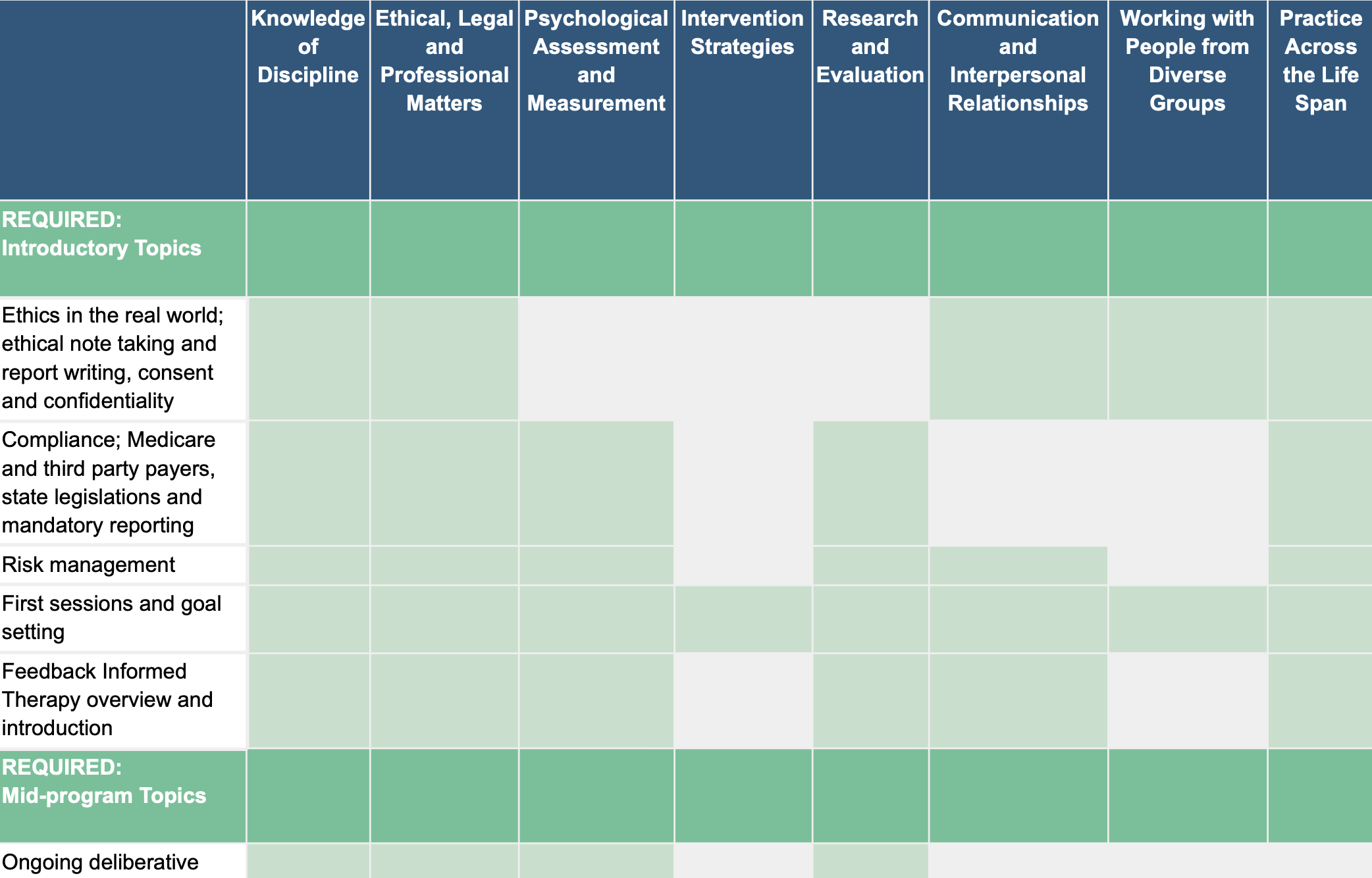
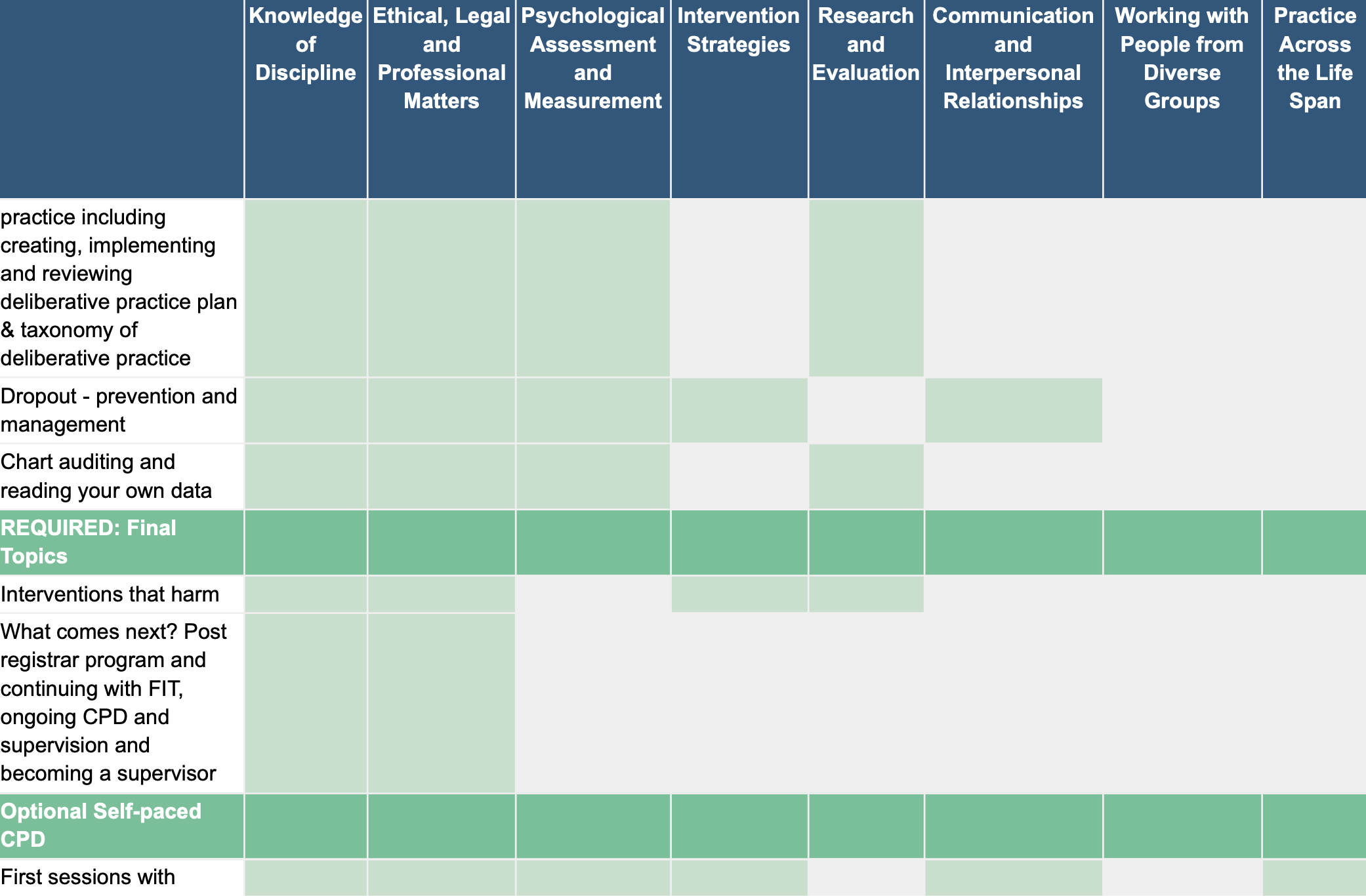
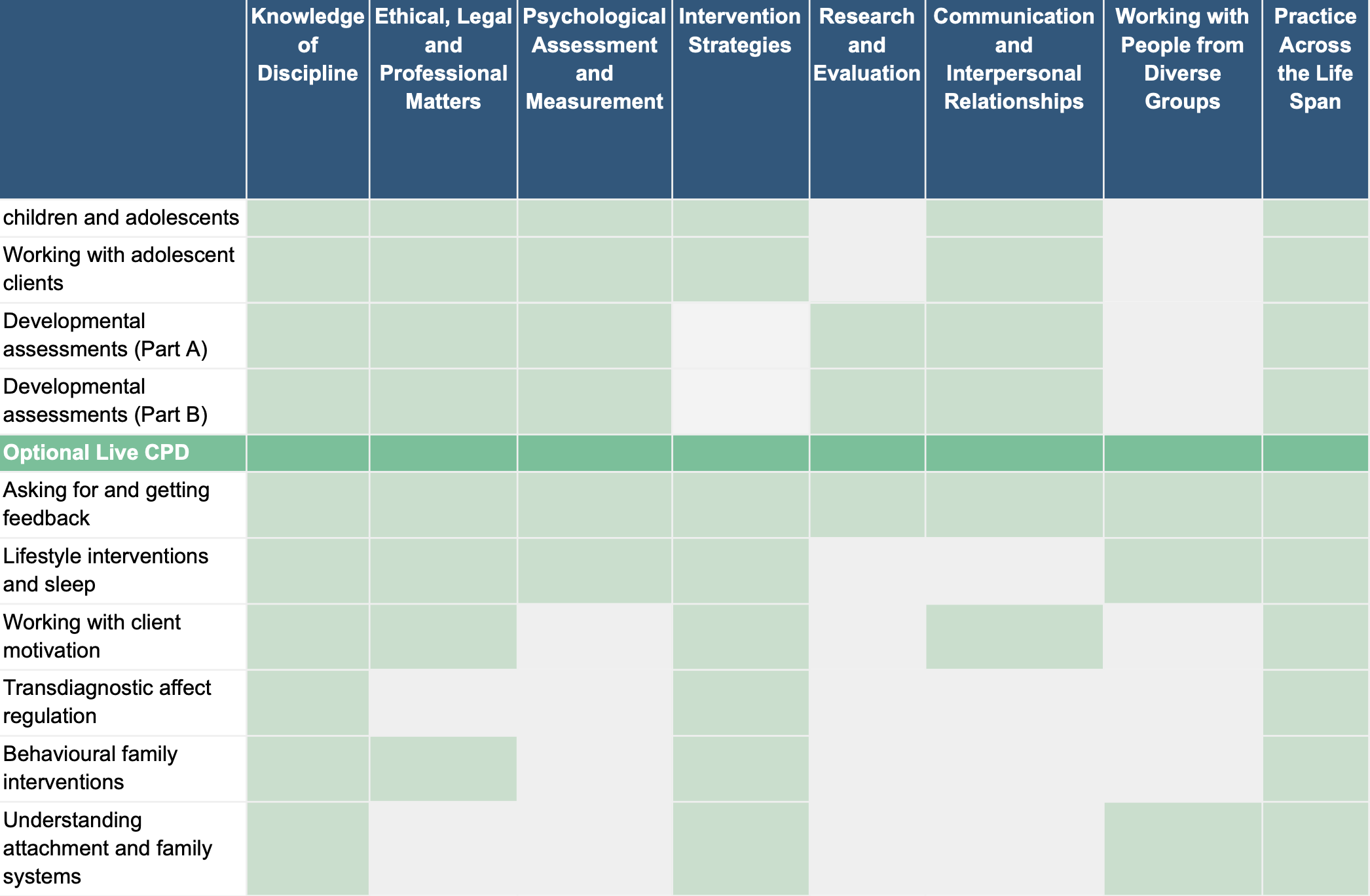
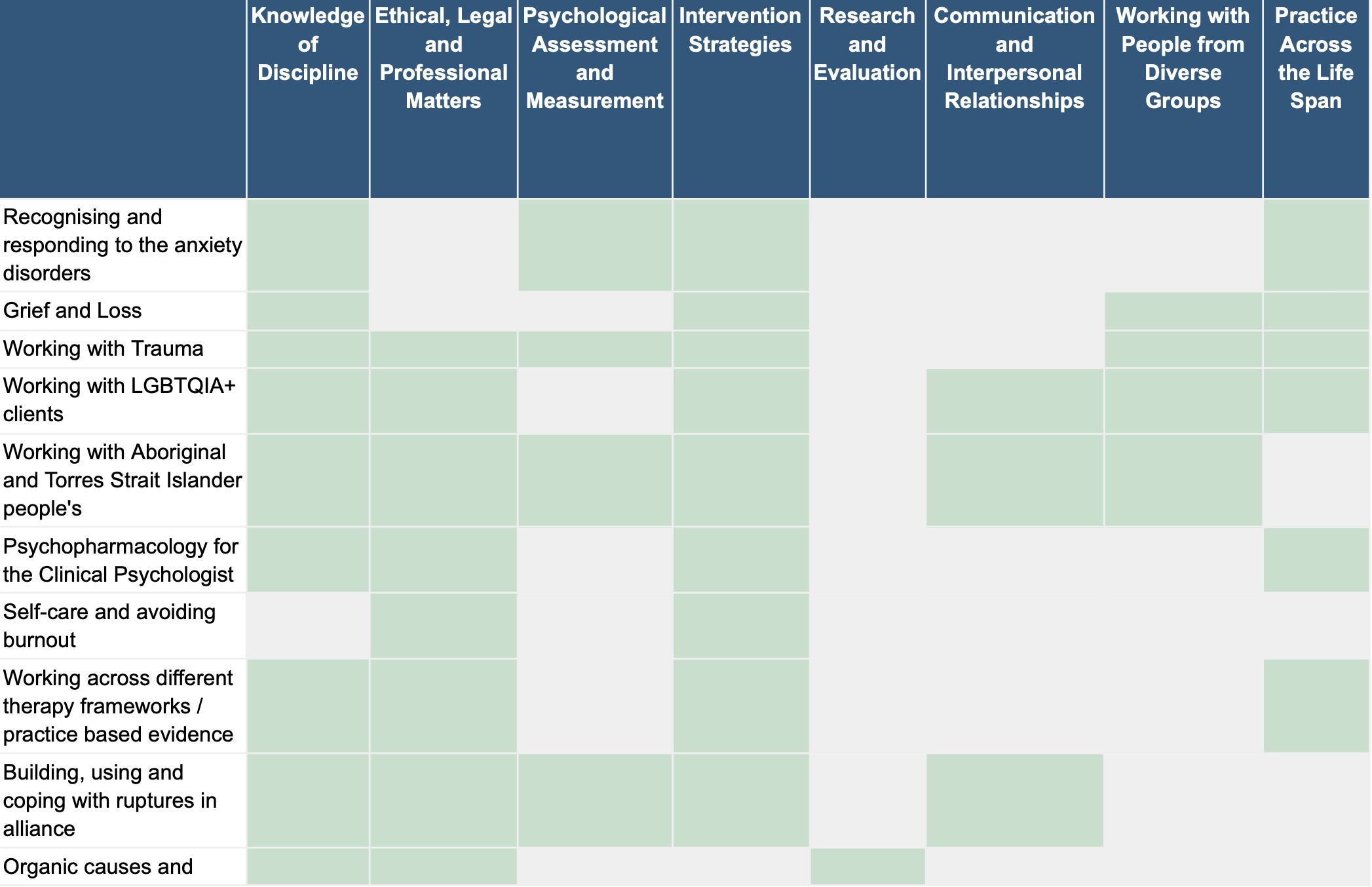
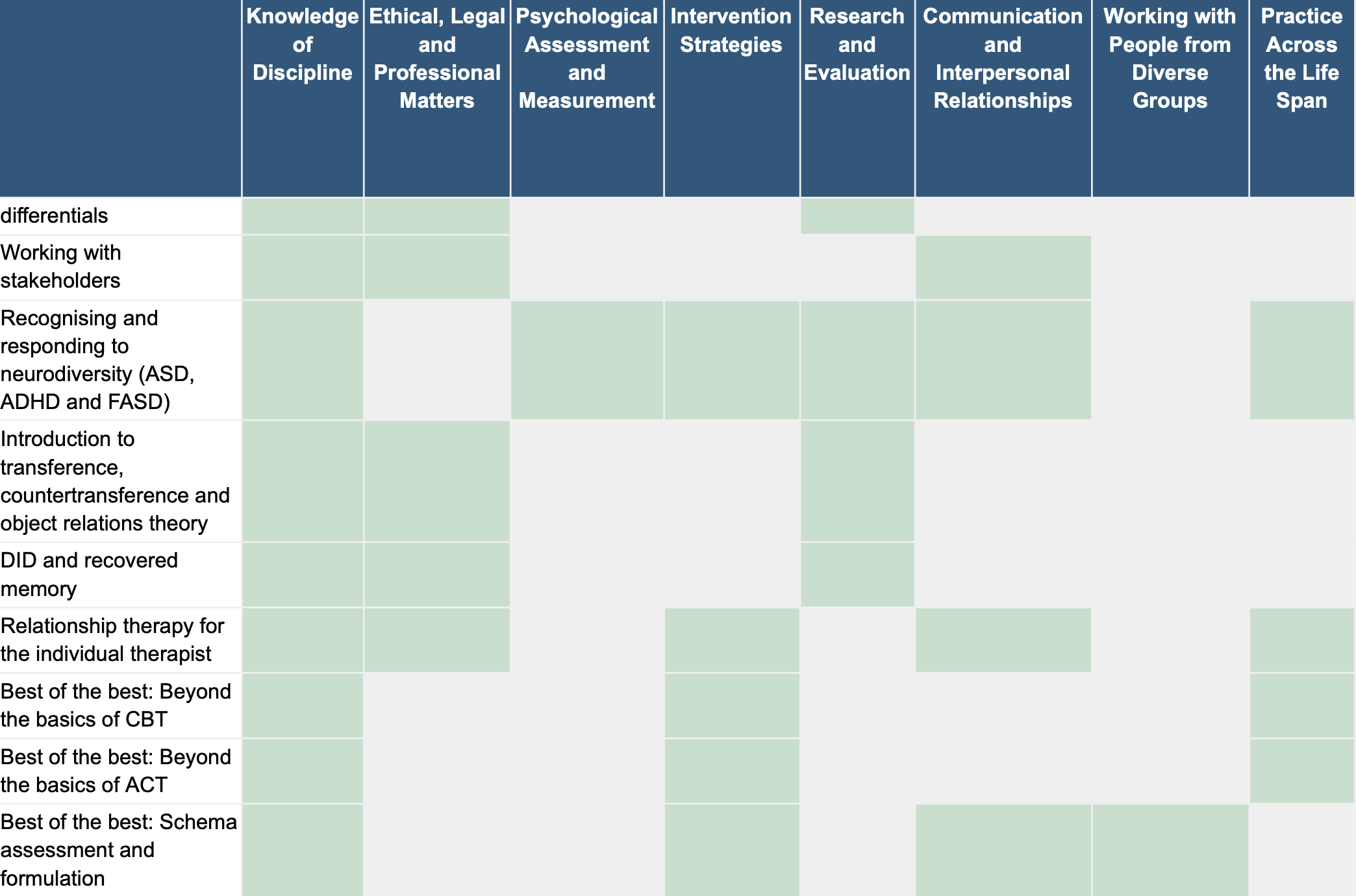
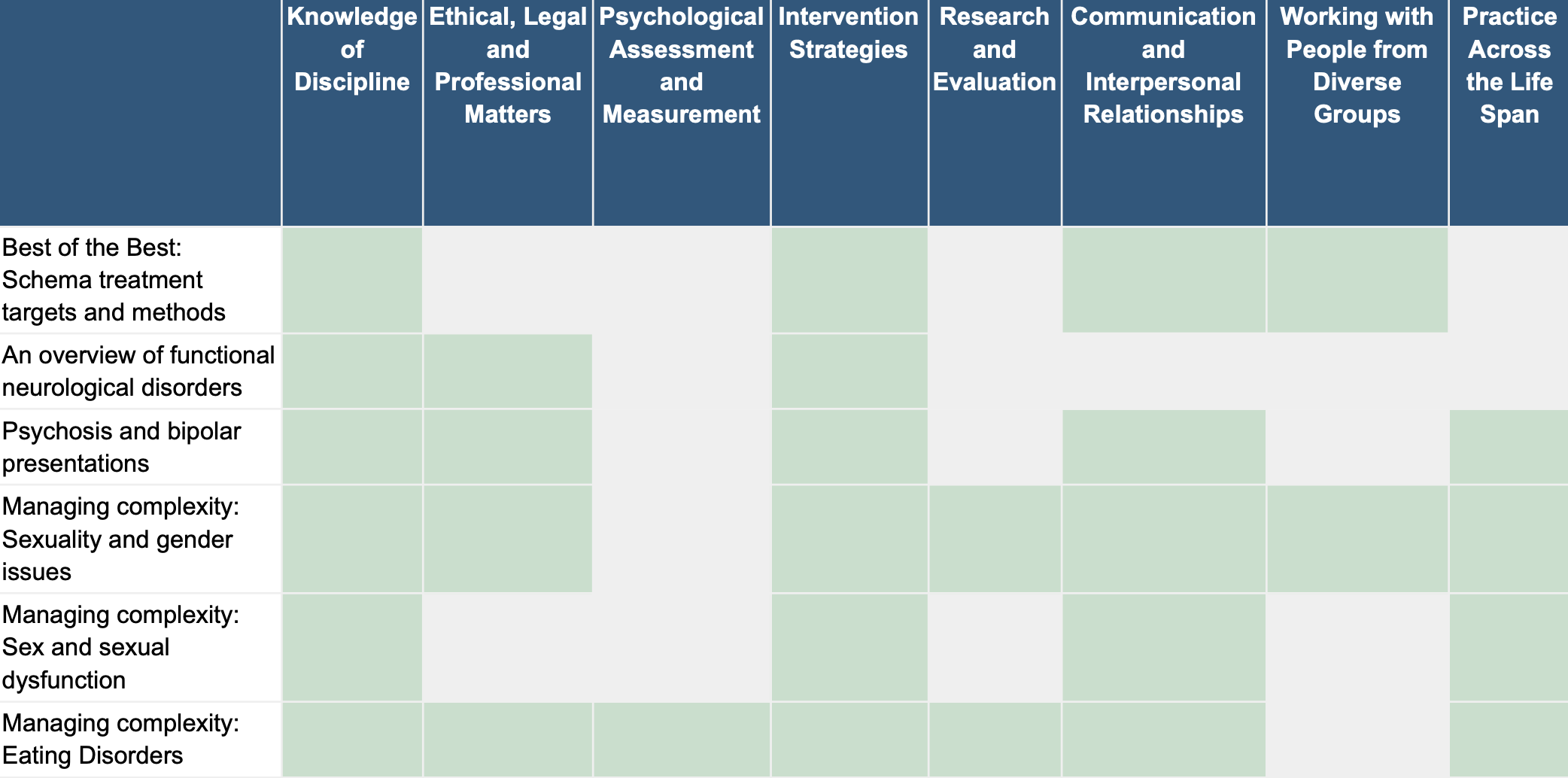
-
prep@benchmarkpsychology.com.au
-
07 3493 6600 -
Facebook
-
Linkedin
We acknowledge the Traditional Owners of the land where we work and live, and pay our respects to Elders past and present. We celebrate the stories, culture and traditions of all communities who also work and live on this land.

15+ CPD hours. Practical cases. 12-month access.
Built for Australian psychologists.
Built for Australian psychologists.
Be Ready for the 2025 Code of Conduct & Competencies
PREP now includes an Ed & Dev stream!
We are so excited to announce that in partnership with the Australian Educational & Developmental Psychologists Association (AEDPA) we can now offer programs to Ed & Dev registrars!
Not long until we kick off CPD and supervision for our 2026 intake. Provide your details so we can make contact, answer your questions and secure your place before it's booked up!
Not long until we kick off CPD and supervision for our 2026 intake. Provide your details so we can make contact, answer your questions and secure your place before it's booked up!
Write your awesome label here.
